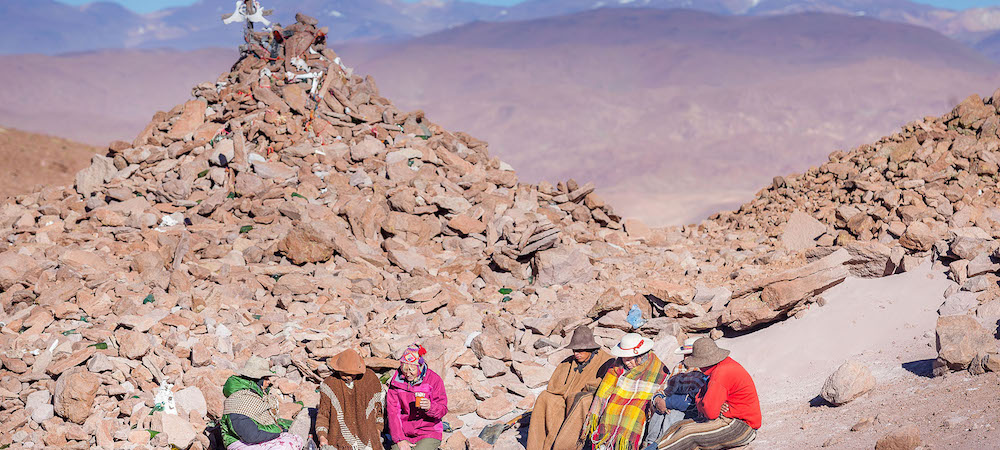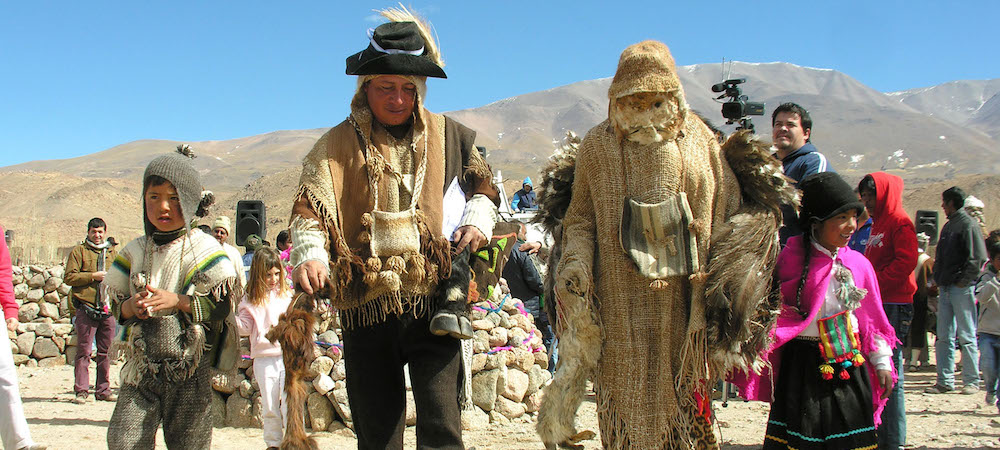What is Pachamama?
Pachamama is the goddess of fertility, the ancient mother of the Earth and overseer of its health and harvest. She is embodied by the mountains and uses her benevolent power to maintain life on earth. In essence, she is Mother Nature.
Hoping Pachamama will protect the fruitfulness of the earth, the indigenous people of the Andes spend the month of August celebrating her. They dig large holes outside every mud hut and town building to represent the mouths of the Earth. They congregate in prayer and sing her praises. The central ritual is “challa”, which loosely means “to nourish and give drink to the land”.
Amidst the singing and dancing, the invocations of gratitude and prayers for health, the offerings of bean stew, corn, various kinds of potatoes and cigarettes, the leader raises his glass, proclaiming his offering to Pachamama before pouring some wine onto the earth. Others in the congregation follow suit, pouring the first drops of their wine or chicha (an alcoholic drink made from fermented corn) onto the ground before drinking.

